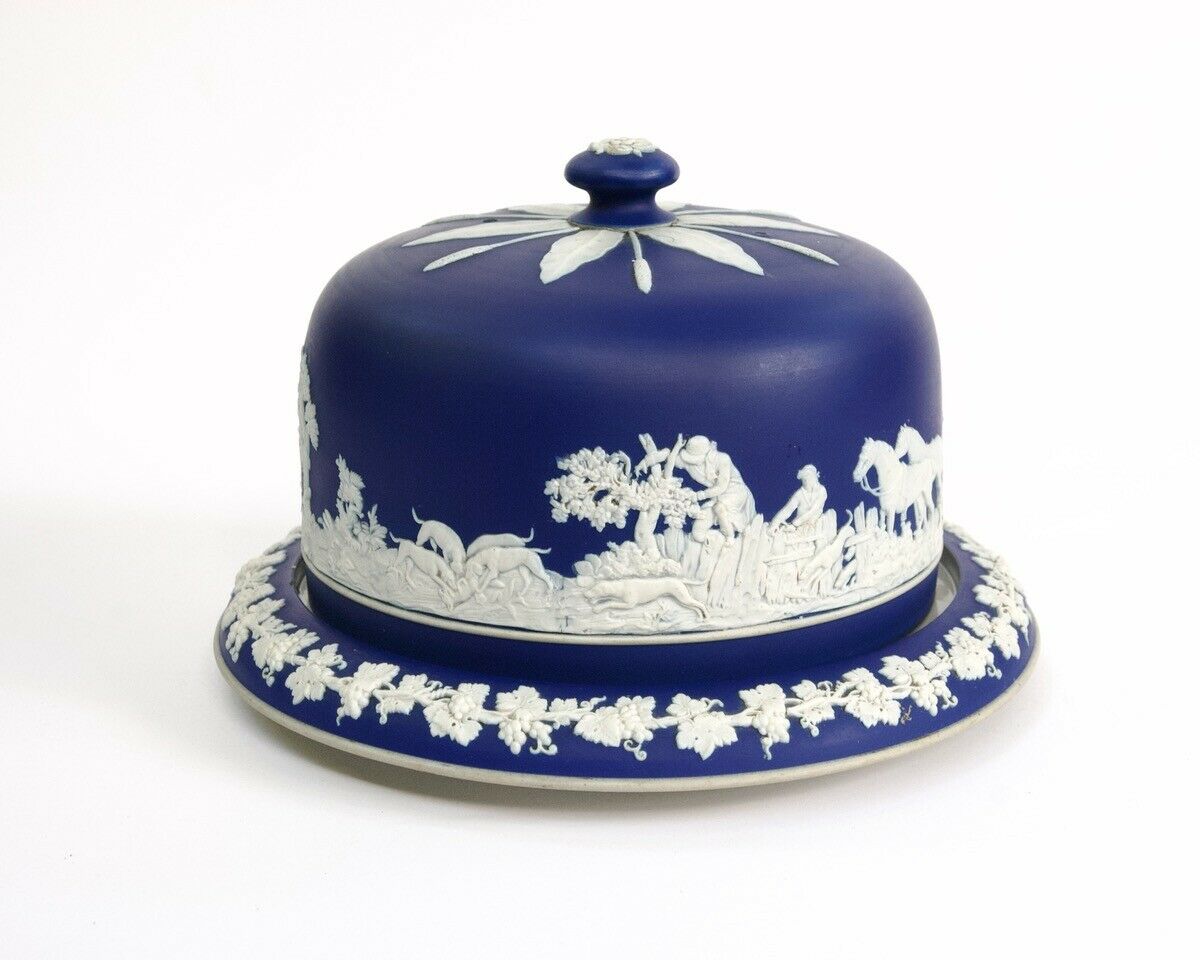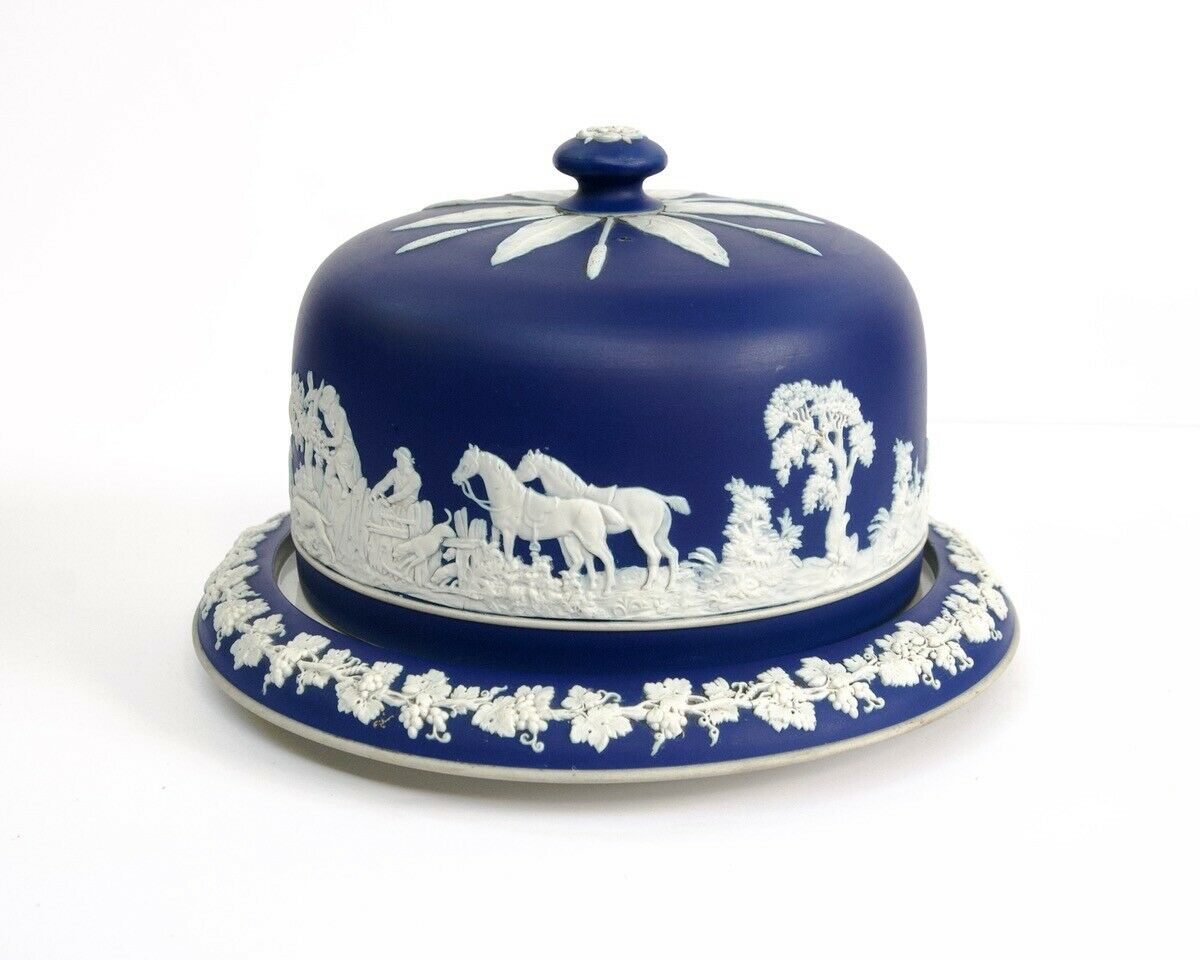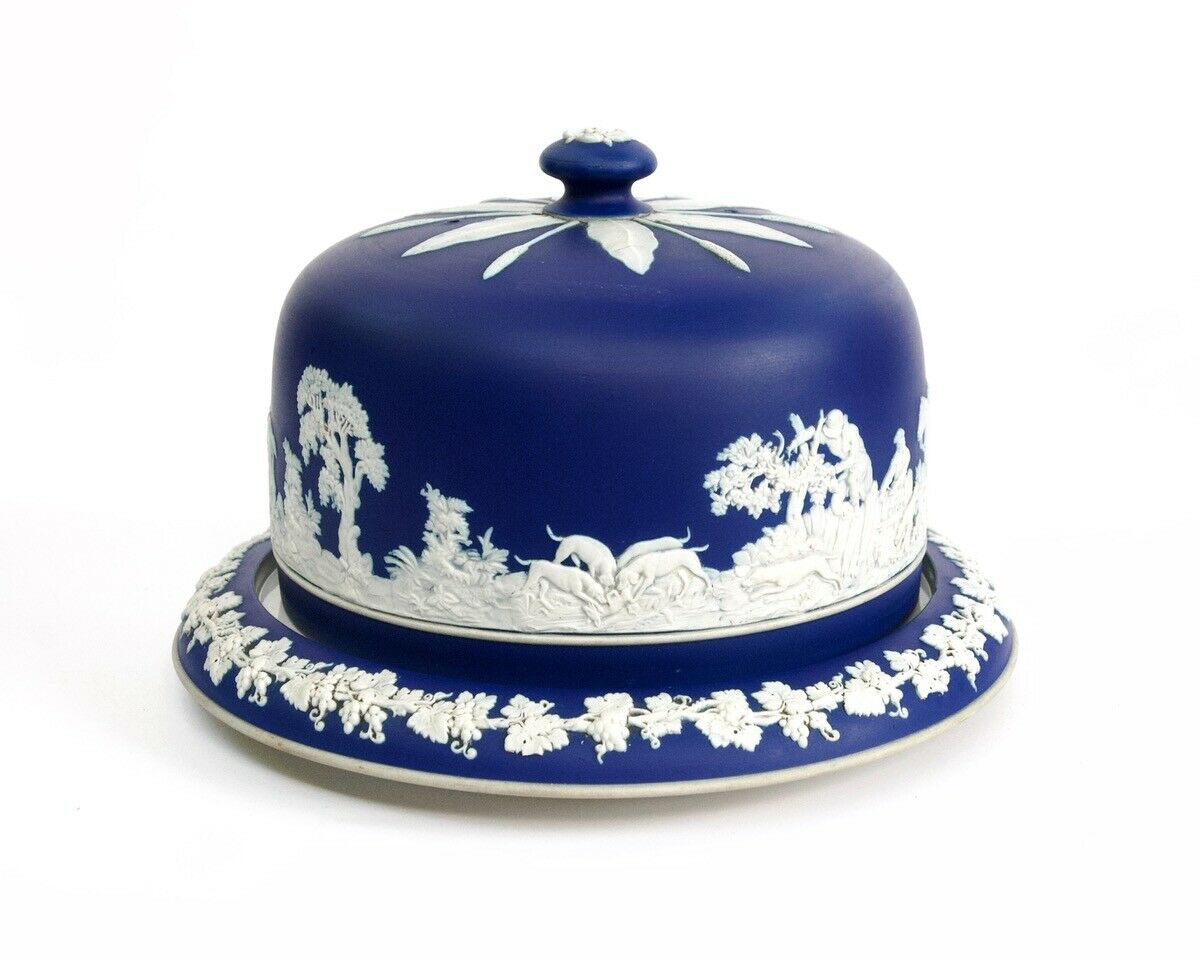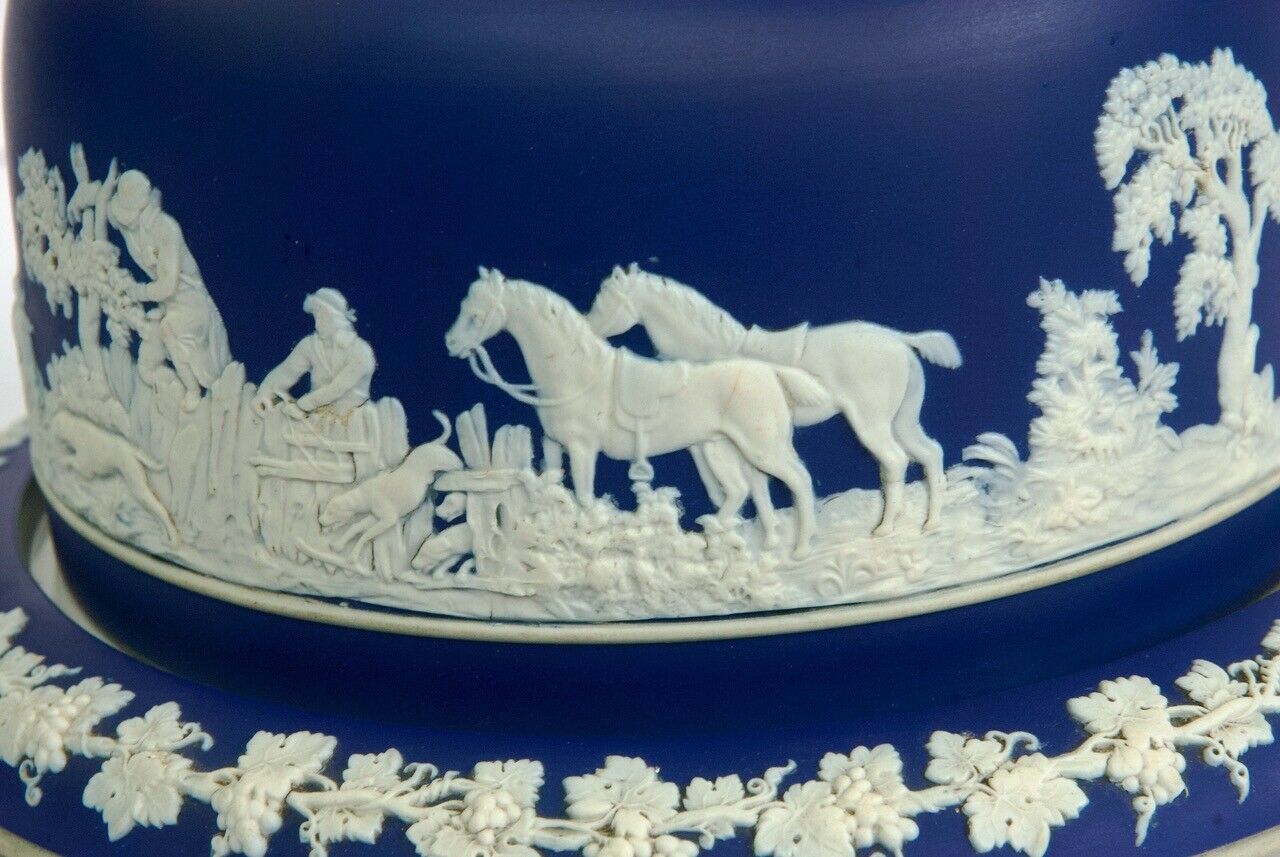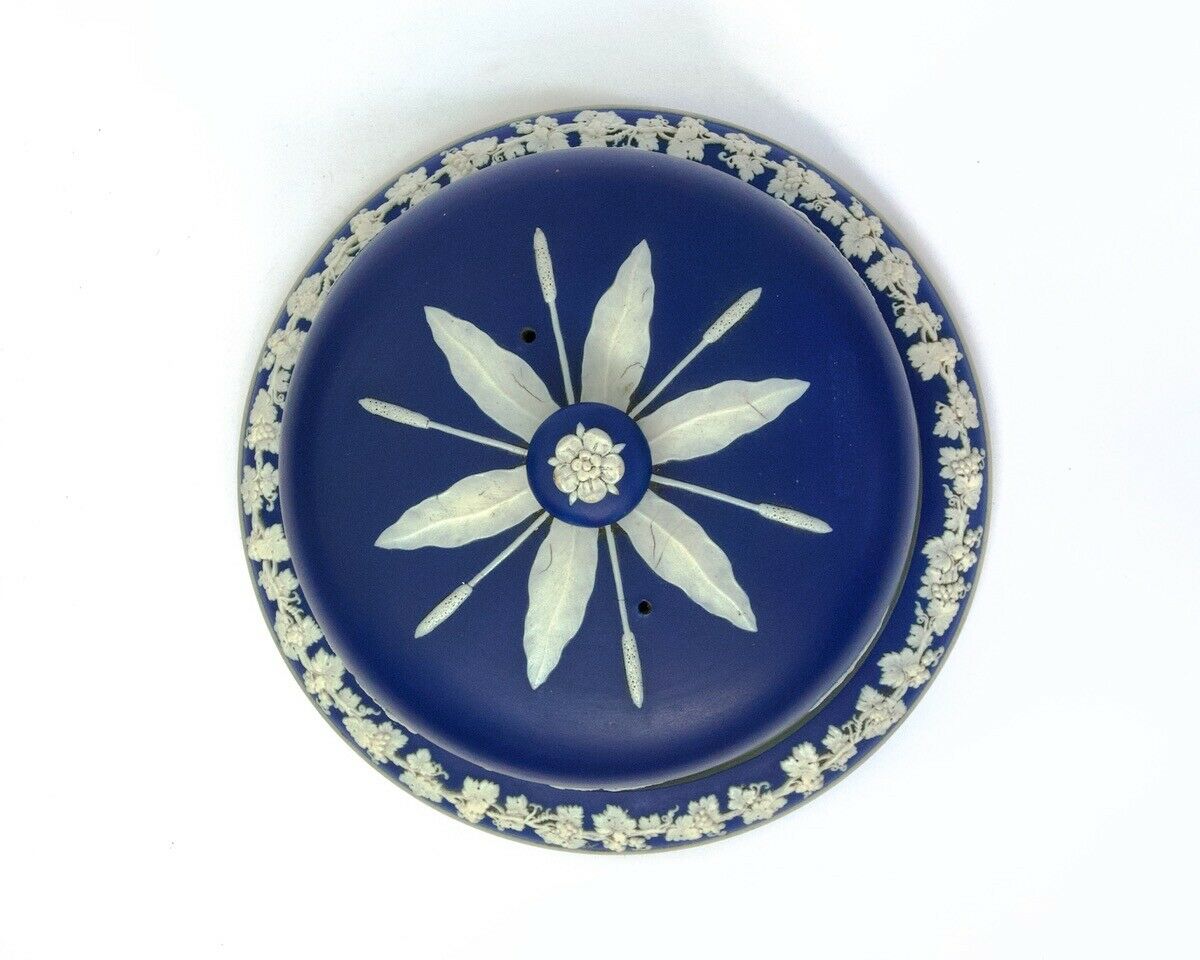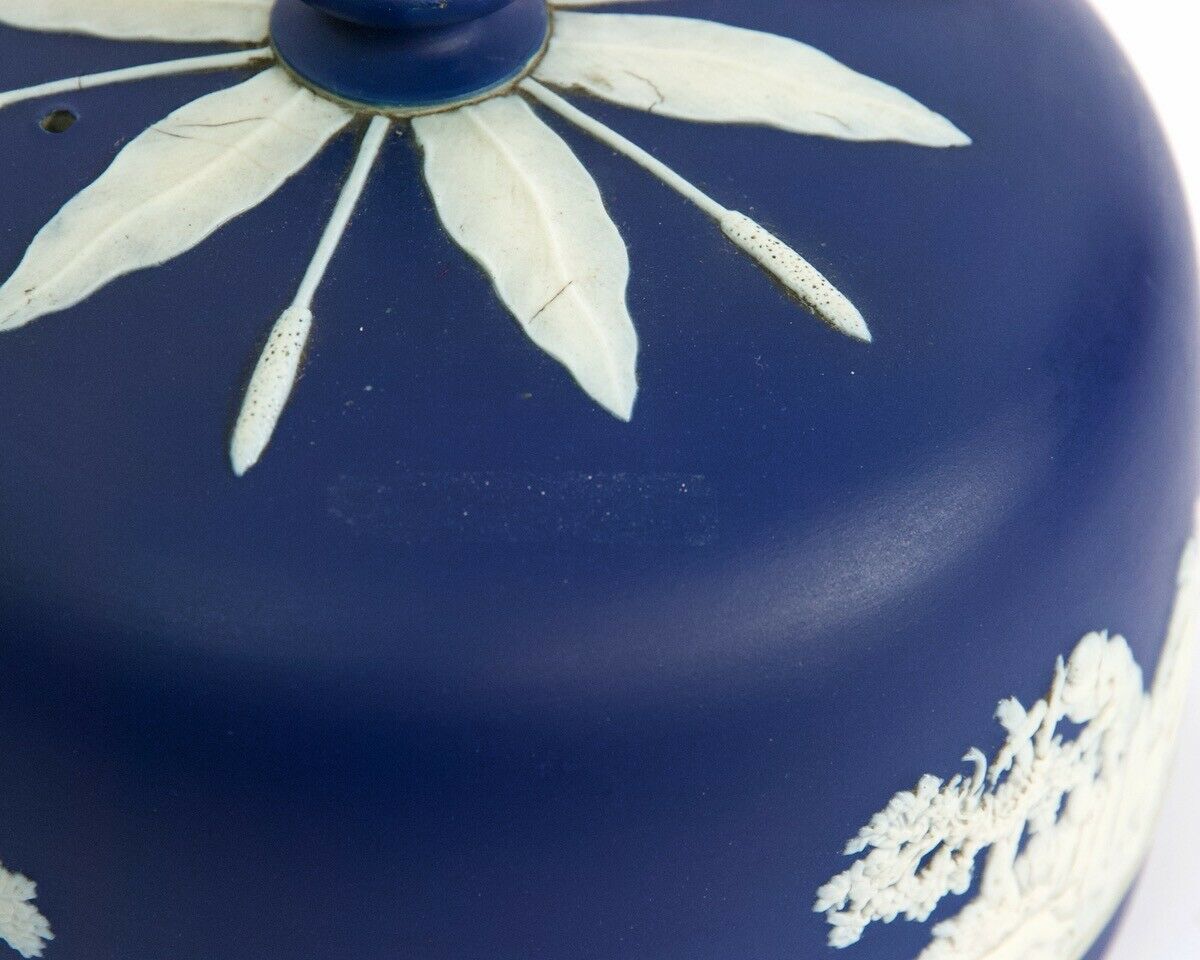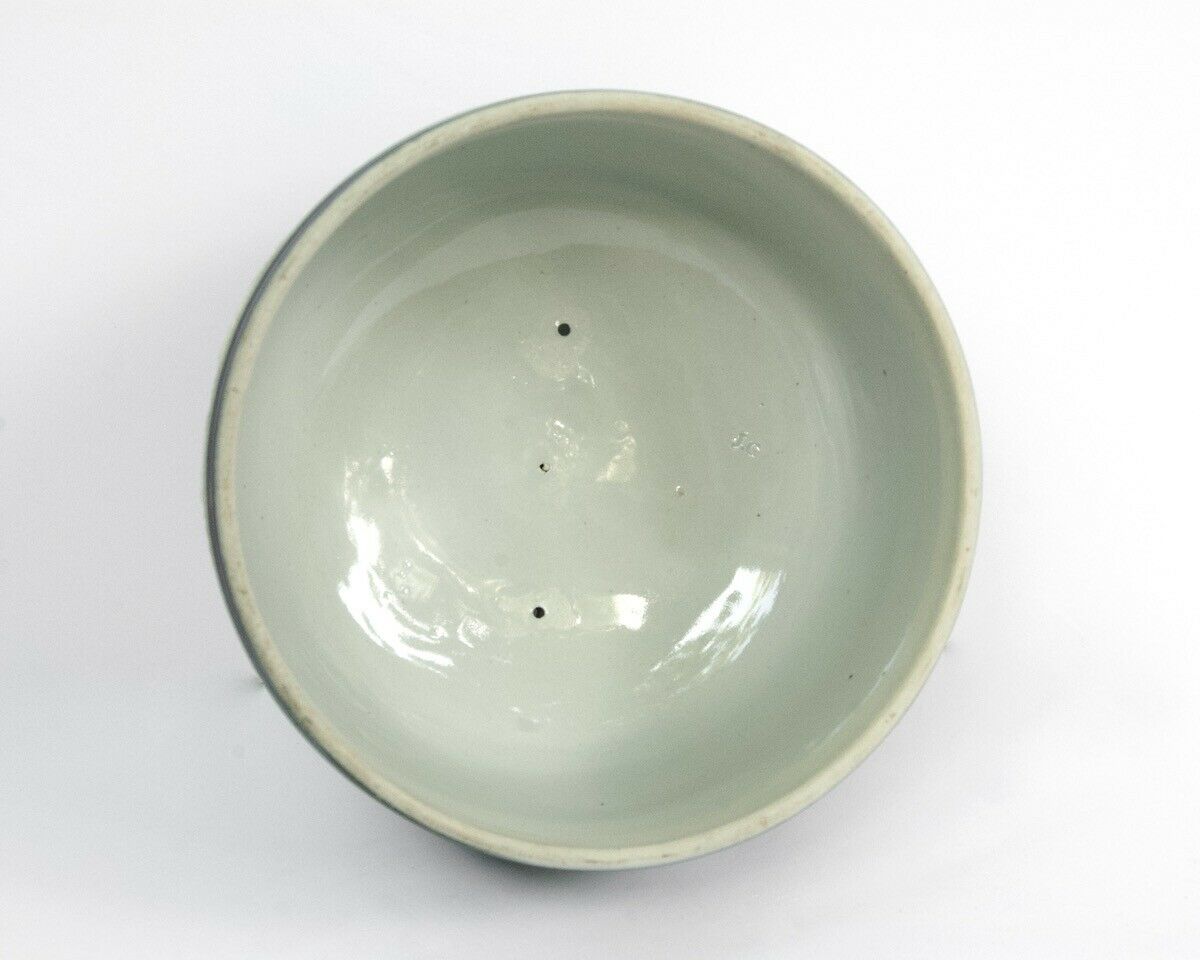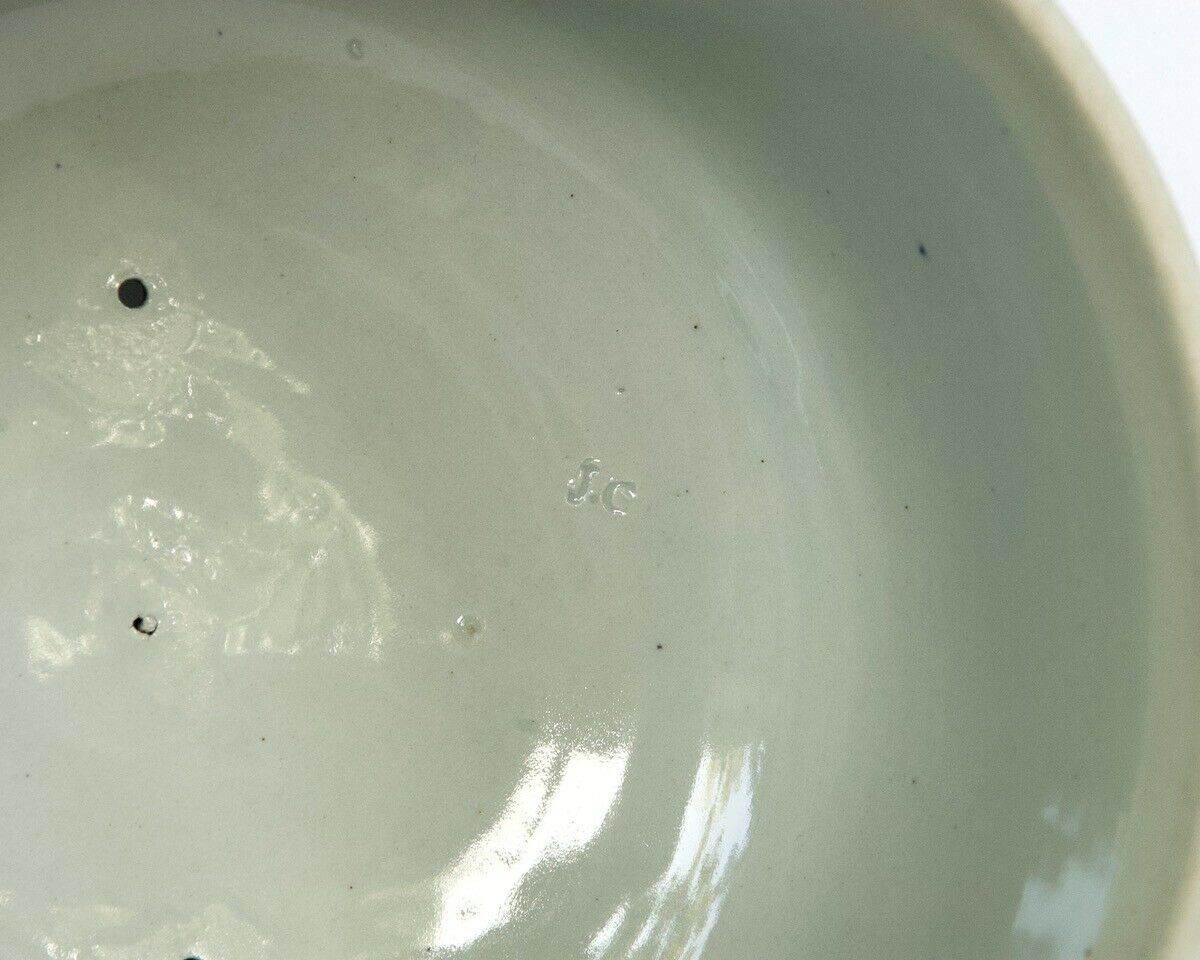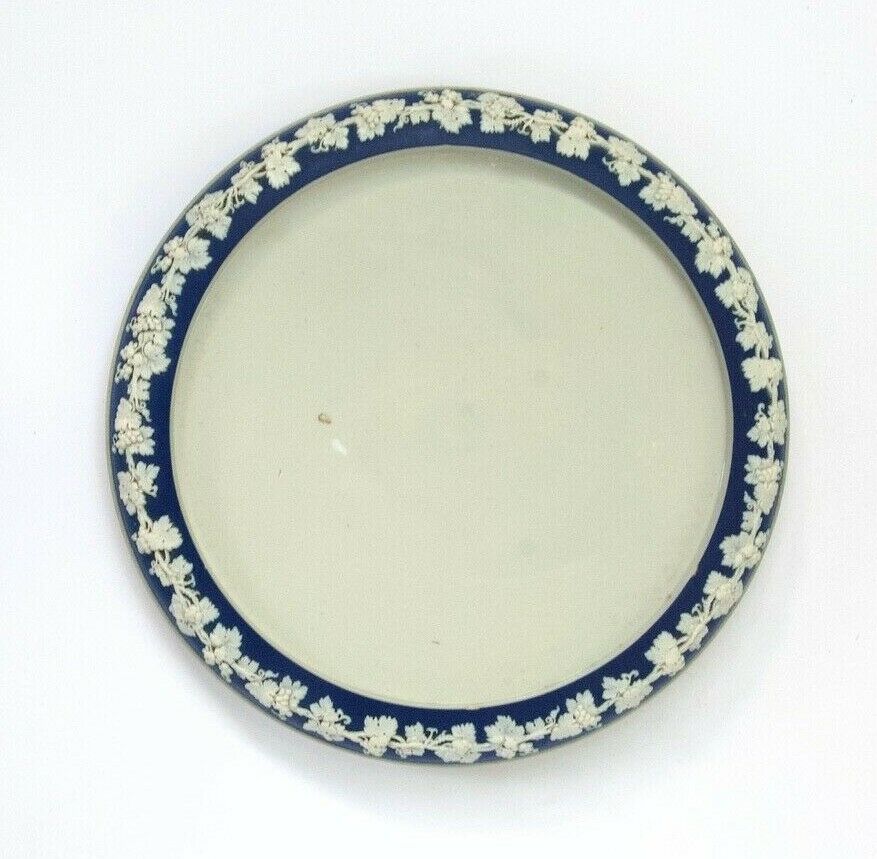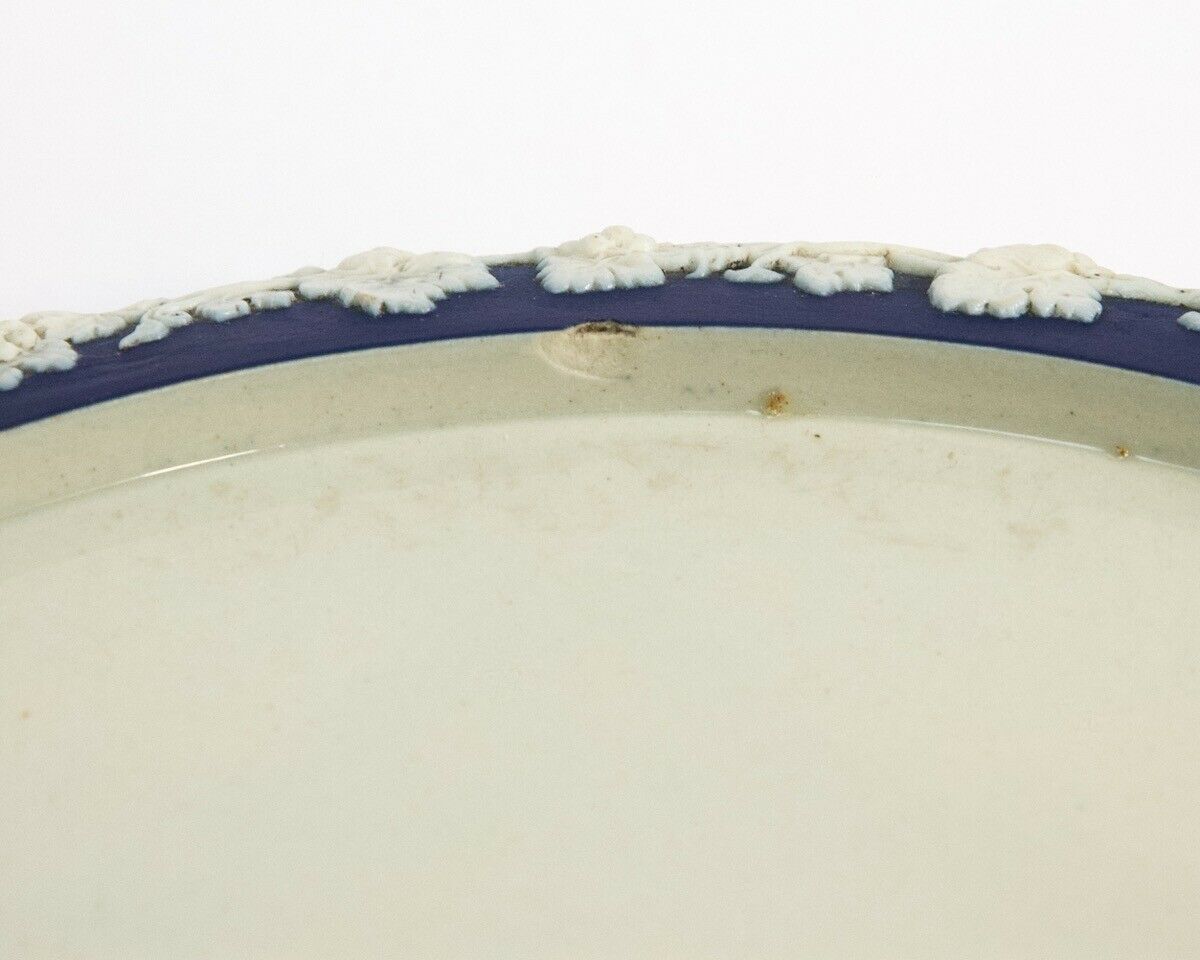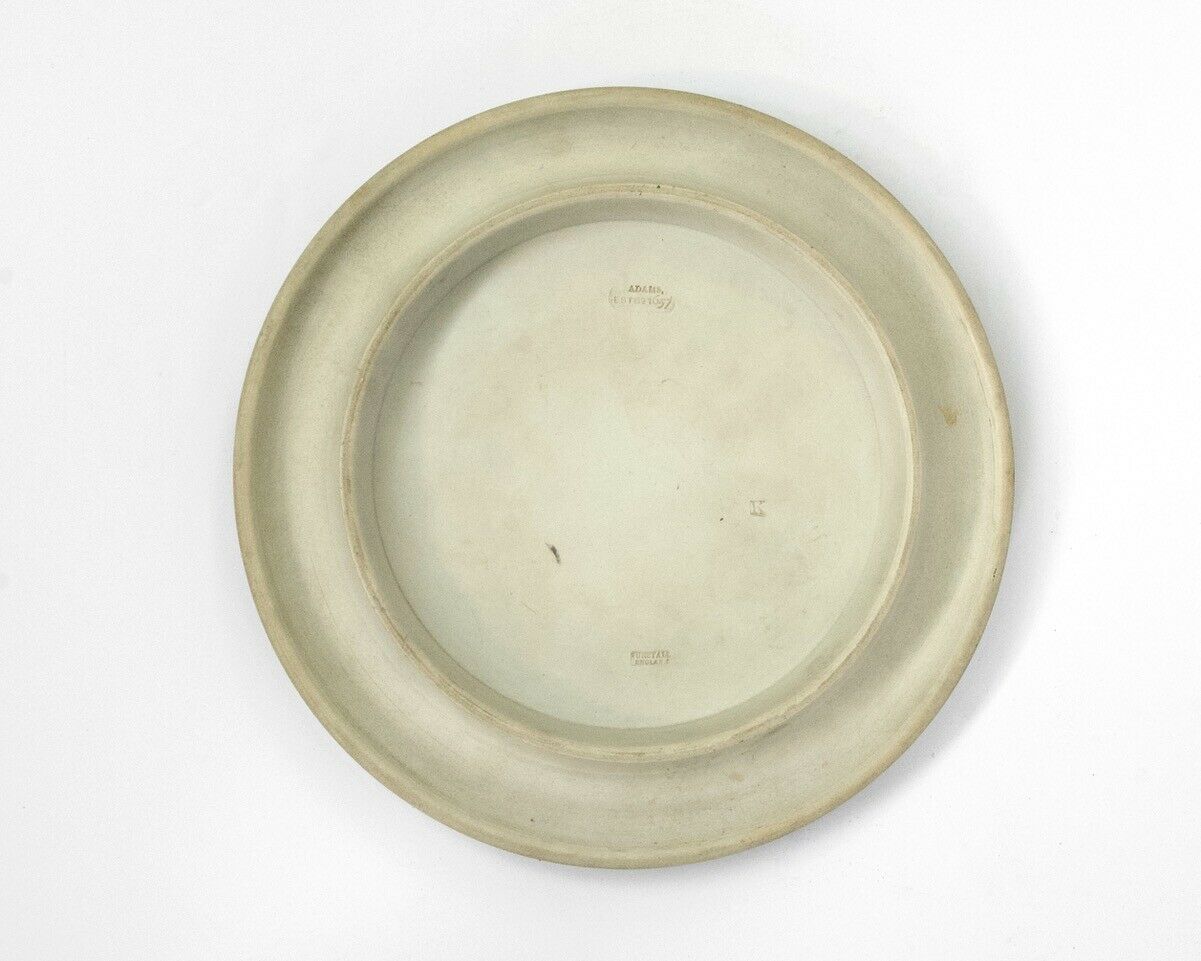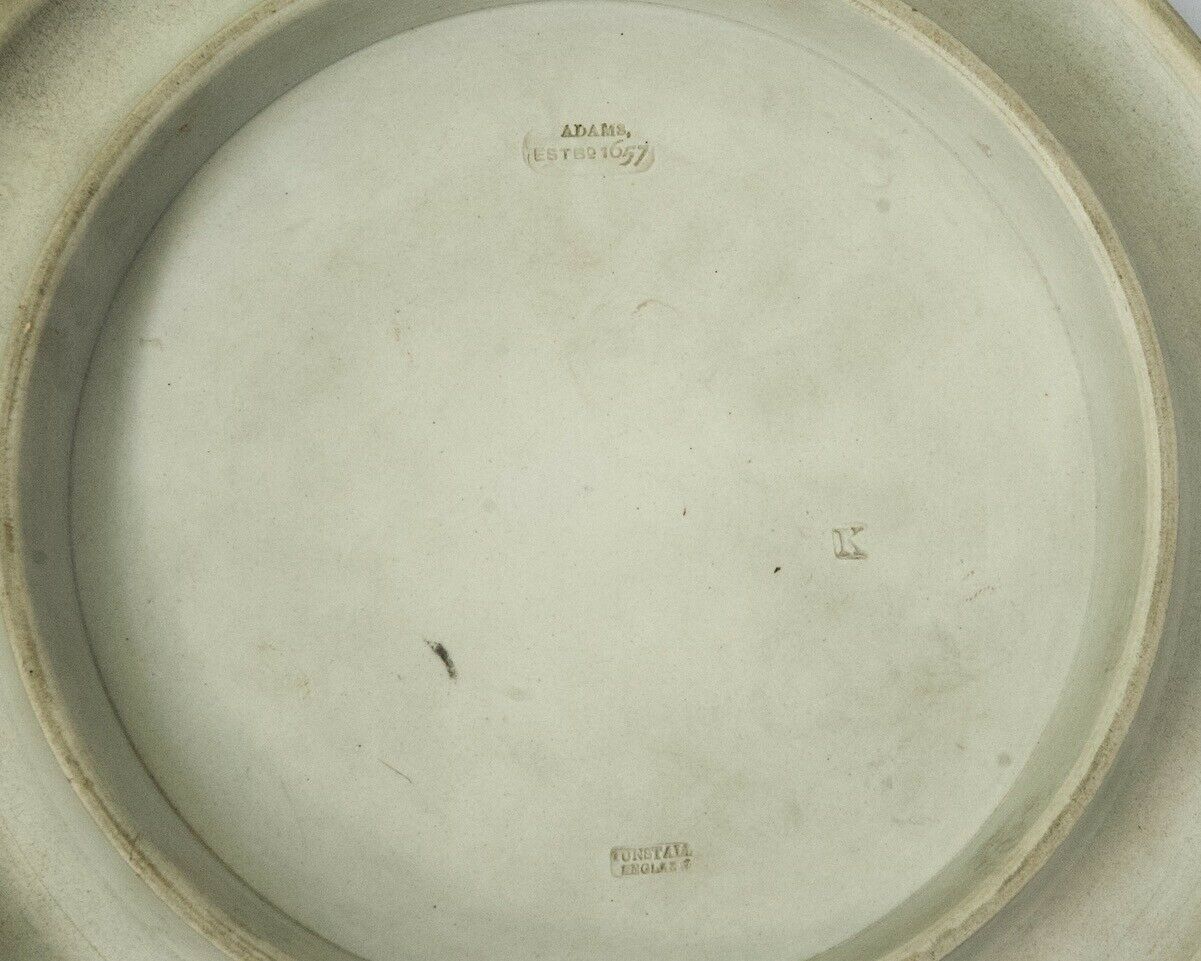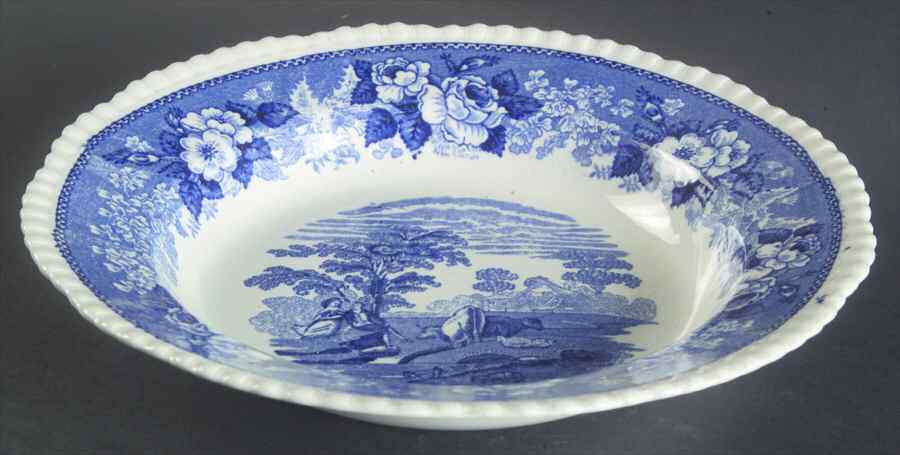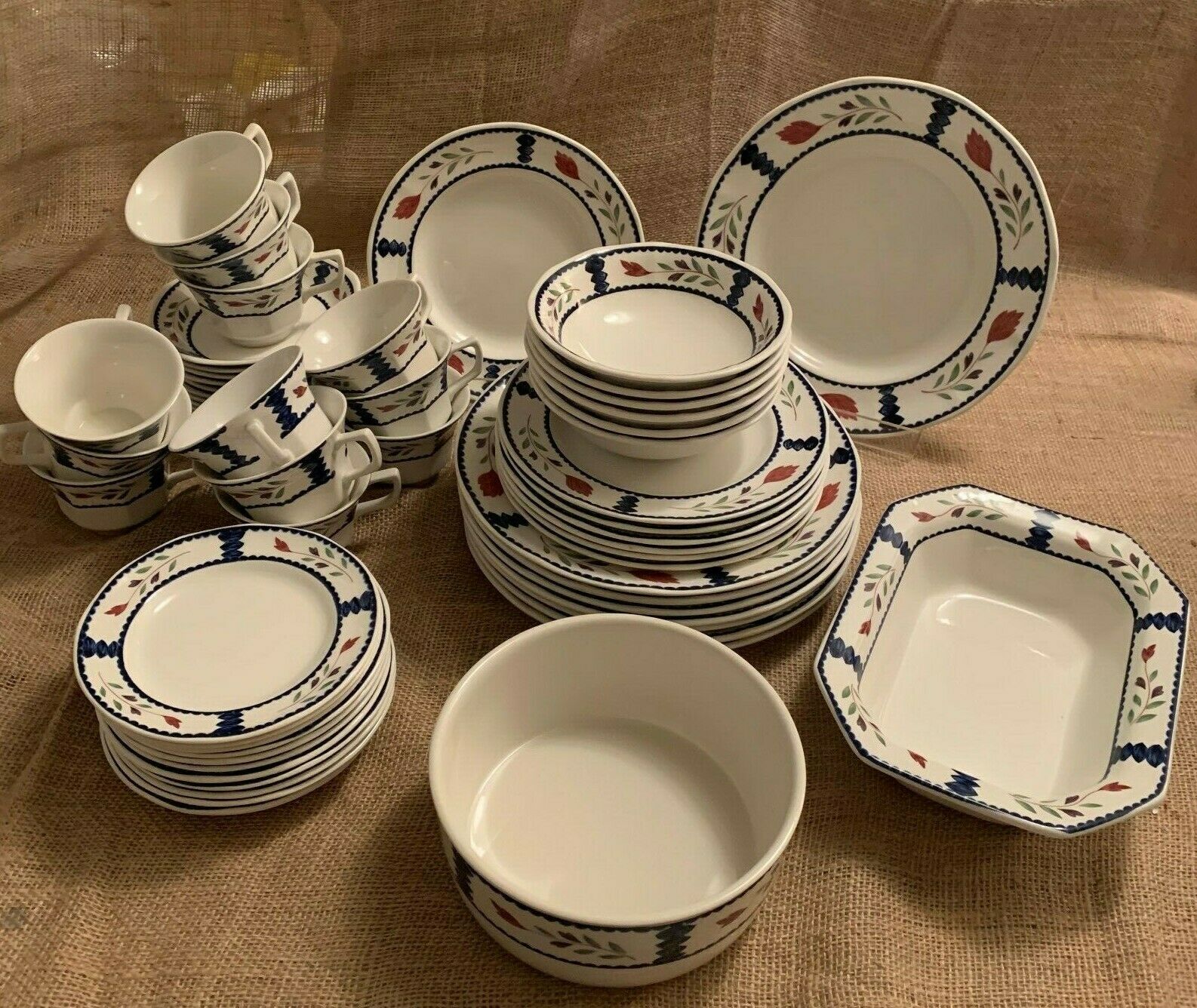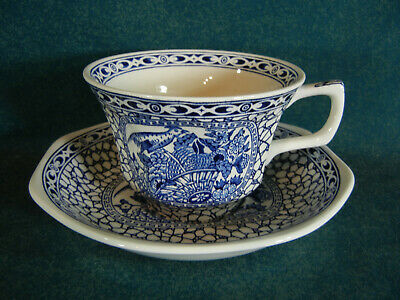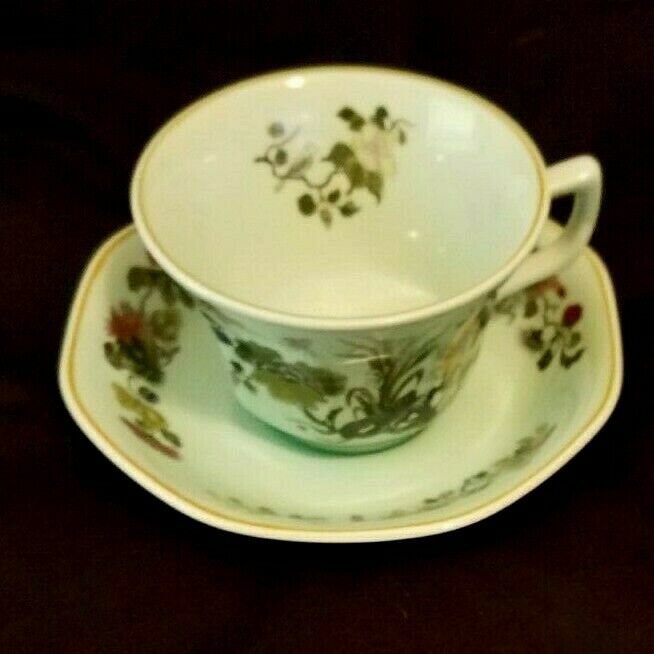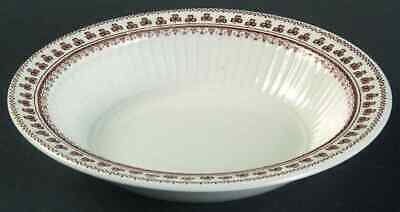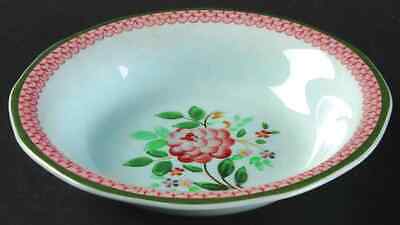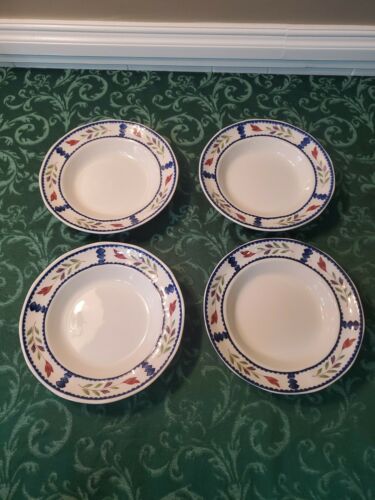-40%
Rare Adams Tunstall Cobalt Dip Hunting Cheese Dish, 1905
$ 157.87
- Description
- Size Guide
Description
This unique Adams Tunstall cobalt dip cheese dish was pictured in the firm's 1905 catalog and priced at 29- shillings. It was the only model of a jasperware cheese dish that Adams ever produced. The dome is sprigged with the intricately detailed panorama of men, horses, and dogs finally converging upon a hapless fox. Alternating laurel leaves and cattails radiate from the crested knob finial. The stand features a wreath of fruiting grapevines.The dome is glazed inside and impressed with "J.C.", the initials of the modeler, J. Caxon. The base plate is impressed underneath with "ADAMS ESTB'D 1687" and "TUNSTALL, ENGLAND" and "K" (workman's mark). The dome is 4” tall with 1” knob (5” total) and 7” in diameter. The base plate is 9-1/4” in diameter and 1-1/4” high. Overall height is about 6”.
The dome has a rectangular patch on top edge that looks like adhesive but doesn't come off. The stand has a 1/4” chip in its top rim. There are some small cracks in the sprigged leaves on top of the dome. Otherwise it is in excellent condition with no scratches or repairs. The bodies of both the dome and the stand are entirely sound.
William Adams I (1746-1805) first produced fine quality jasperware at his Greengates Pottery about 1870. Adams was an accomplished artist and chemist, and he established his own formulas for producing jasperware and modelled many of his own bas-relief designs for its sprigged decorations. At the time he was the primary rival of his contemporary Josiah Wedgwood (1730-1795).
When Adams and his wife both passed away in 1805 in a cholera outbreak, their eldest son, William Adams Junior, died the same year. Junior was already a master potter and had been groomed to take over the firm in his father's stead. His younger brother Benjamin was only 17 and had not been trained as a potter. The eldest daughter Mary guided the firm for four years during the minority of her brother. Benjamin succeed as head potter in 1809. He produced no jasperware and under him the firm did not prosper. It closed in 1820 and Greengates was sold to John Meir in 1822.
In1896, Greengates was bought back by a collateral branch of the family and reopened as Adams, Tunstall. Miraculously, a room at Greengates that had remained sealed off since the days of William Adams was found to contain the founder's formulas, drawings, molds, and other production documents that served as the basis of a revival of the firm's jasperware production.
Payment is required within 3 days of end of auction. Ships insured to U.S. addresses via USPS Priority Mail.
Good luck bidding!
